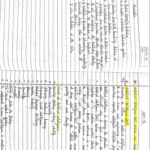EUROPEAN FOOD
SAFETY AUTHORITY
(EFSA)
www.DuloMix.com 1
www.DuloMix.com 2
What is EFSA ?
• EFSA is agency of European Union that
provides independent scientific advice and
communicates on existing and emerging risks
associated with food chain.
• The agency established in 2002 with head
quarter at Parma, Italy, by the EU under the
General Food Law – Regulation.
• The General Food Law created a European
food safety system in which
responsibility for risk assessment
(science) and for risk management (policy)
are kept separate.
www.DuloMix.com 3
• The Authority also has an important role in communicating
its advice to its principal partners, stakeholders and the
public at large in a timely, clear and meaningful way,
helping to bridge the gap between science and the
consumer.
• The EFSA cooperates with the national food safety
authorities of the 28 EU member states, Iceland and
Norway, as well as observers from Switzerland.
• EFSA works with Member States to collect data on food,
food consumption and consumer exposure to substances
found in food and feed.
www.DuloMix.com 4
• EFSA undertakes scientific work on its own initiative, such
as advice published in 2011 on measures to control and
prevent food-borne viruses – the second most important
cause of food-borne outbreaks in the EU.
• The authority conducts meetings at regular intervals with
organizations representing consumers, industry,
environmental NGOs and other stakeholders to encourage
their involvement and understanding of its work.
www.DuloMix.com 5
Organization:
• EFSA is governed by a management board with 15
members.
• The EFSA is composed of four bodies:
1. Management Board
2. Executive Director
3. Advisory Forum
4. Scientific Committee and Scientific Panels
www.DuloMix.com 6
Fig 1: Flowchart of the organization
www.DuloMix.com 7
1.The Management Board sets the budget, approves work
programs, and is responsible for ensuring that EFSA co-
operates successfully with partner organizations across the
EU and beyond.
2.The Executive Director is EFSA’s legal representative
and is responsible for day-to-day administration, drafting and
implementing work programms, and implementing other
decisions adopted by the Management Board.
3.The Advisory Forum advises the Executive Director, in
particular in drafting a proposal for the EFSA’s work
programs.
www.DuloMix.com 8
4. The Scientific Committee and its Scientific Panels
provide scientific opinions and advice and are composed of
independent scientific experts.
• The scientific committee has developed a harmonized
framework to use across its scientific panel when
evaluating the potential combined effects of chemical
mixtures in food.
www.DuloMix.com 9
Functions:
• The European Food Safety Authority (EFSA)
provides independent scientific advice on food-related
risks.
• This advice informs European laws, rules and
policymaking – and helps to protect consumers from
risks in the food chain.
• It also protects:
1. Food and feed safety
2. Nutrition
3. Animal health and welfare
4. Plant protection and plant health.
www.DuloMix.com 10
• EFSA issues advice on existing and emerging food risks
• EFSA’s work involves:
1. Gathering scientific data and expertise
2. Providing independent, up-to-date scientific advice on
food safety issues
3. Communicating its scientific work to the public
4. Cooperating with EU countries, international bodies,
and other stakeholders
5. Boosting trust in the eu’s food safety system by
providing dependable advice.
www.DuloMix.com 11
• It also works together and exchange knowledge between
food safety experts in EU and globally ensures excellence
and efficiency and maximizes the available risk
assessment capacity and potential.
• European Food Safety Authority has been tasked with:
(i) issuing scientific opinions allowing for risk assessment,
(ii) promoting and coordinating the development of risk
assessment methodologies,
(iii) commissioning scientific studies,
(iv) summarizing, analyzing and collecting scientific and
technical data,
(v) identifying emerging risks,
www.DuloMix.com 12
(vi)establishing a system of networks of relevant
organizations,
(vii) assisting the EC in crisis management,
(viii)providing independent information to the public and
interested parties on all matters within its mission with a high
level of transparency
(ix) announcing the risks.
• Through its risk communications activities, EFSA seeks to
raise awareness and further explain the implications of its
scientific assessments.
www.DuloMix.com 13










